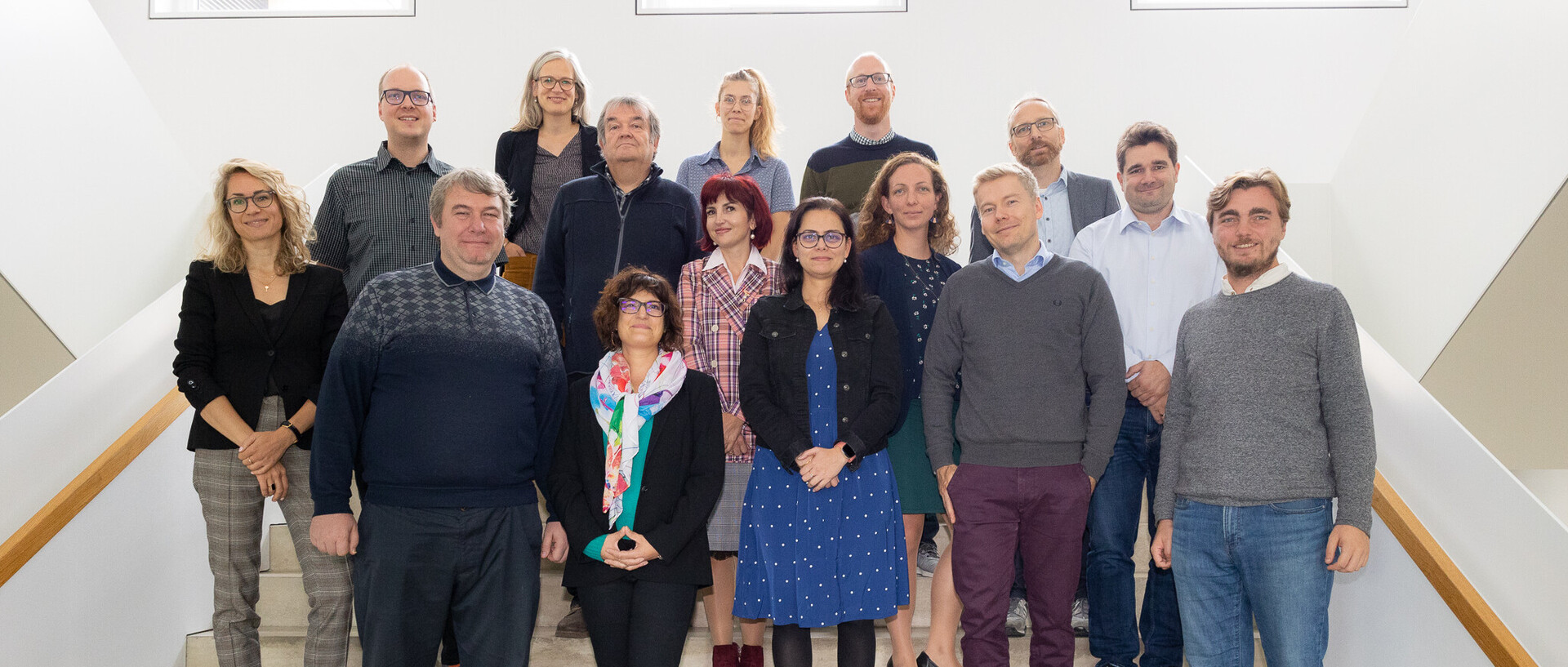Review of the First ENGAGE.EU Think Tank 2022 in Mannheim

It was a successful premiere in the history of the European University ENGAGE.EU: From 29 September to 2 October 2022, 14 researchers from the nine ENGAGE.EU partner universities came together at the University of Mannheim for the first ENGAGE.EU Think Tank. During the one-week research stay, they thoroughly explored the role of digitization for sustainable development, addressing the issue from multiple perspectives, both individually and in small research groups.
“The Think Tank is the first of its kind. It aims to bring together researchers from different European higher education institutions to create networks and establish collaborations,” explains Vidya Oruganti from the NHH Norwegian School of Economics.
Expanding networks
The event also hosted various digitization experts from business, academia, and politics, with whom participants had the opportunity to get in touch and exchange ideas, for example:
- Mariette Karamanli, member of the French National Assembly and responsible for the regulation of digital platforms in Europe;
- Luka Mucic (CFO SAP) and Kristian Schier (Chief Architect SAP) who addressed supply chain disruption and business networks;
- Vijay Ratnaparkhe, Chief Information Officer at Robert Bosch GmbH in the area of digitalization;
- Norman Wingen from the European Bank for Reconstruction and Development on taxation of the digitized economy as well as on taxation and sustainability.
Overall, the Think Tank was a great experience for the researchers, providing them with a platform to present their research projects and to work together on new ideas and suggestions. For Ashley Metz from Tilburg University, it was precisely this networking aspect that was of primary importance: “It is exciting for me to collaborate with others on digitization in Europe as well as on various societal applications. I hope to be able to make some contacts for further collaboration and ongoing projects.”
Research spectrum
The variety of topics that participants contributed illustrates the broad spectrum of the research focus “digitization”:
- Activity tracking for research in the Social Sciences;
- How to promote sustainable digital transformation, e.g., through taxes or subsidies?
- Regulation of artificial intelligence;
- How can technology and innovation be harnessed for the common good and sustainability?
- Digital transformation from a wider knowledge perspective;
- Digitization of risk management in the context of climate hazards and natural disasters;
- Mapping the scene of relevant topical journals.
Filippo Bontadini from Luiss University in Rome is currently investigating how digitization relates to social inequality, particularly in the area of wage polarization. According to him, the research stay was a great opportunity to exchange ideas about this relatively new phenomenon with other colleagues from related fields: “Personal contact is a great asset because it opens up new discussions. We are now jointly investigating whether digitization and inequality are an issue, or whether there are policy instruments that can be used to shape taxation in such a way as to ensure that digitization works for everyone”, he says.


















